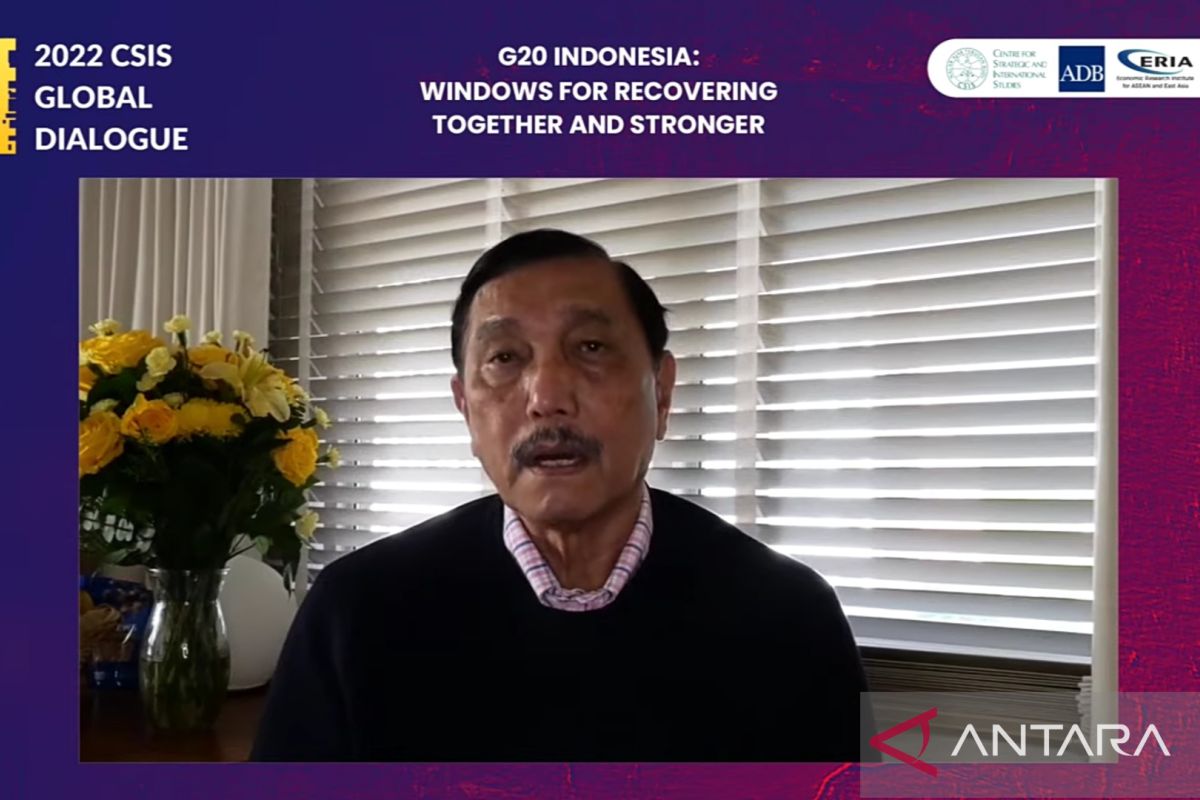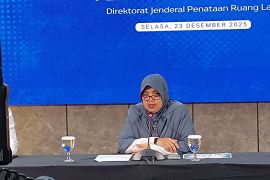Health fund is needed to improve the global response to COVID-19 and increase preparedness to face a pandemic in the future.Jakarta (ANTARA) - Indonesia is committed to building a better global health architecture by closing the health financing gap between developed and developing nations during its G20 Presidency, the Coordinating Minister for Maritime Affairs and Investment has said.
“Health fund is needed to improve the global response to COVID-19 and increase preparedness to face a pandemic in the future,” Minister Luhut Binsar Pandjaitan said at the 2022 CSIS Global Dialogue, accessed from Jakarta on Wednesday.
He highlighted the significance of mobilizing a sizable amount of investment to improve global health architecture as well as implement innovative financing schemes.
The COVID-19 crisis has demonstrated that the world lacks the resources to prepare every country for a pandemic. This has also been evident from inequitable vaccinations, with the vaccination rate in low- and middle-income countries still low, he noted.
“Low- and middle-income countries must be encouraged to reform their health sector to meet the global target of COVID-19 vaccination, diagnosis, and treatment,” Pandjaitan said.
In addition to the health sector, the COVID-19 pandemic has also had an impact on the education sector, with an estimated 1.5 billion children finding it difficult to access education and 30 million school dropouts expected to be unable to return to school.
The World Bank has predicted that low- and middle-income countries’ educational spending will potentially fall by US$100–150 billion from the previous projection.
“The long-term economic cost of learning losses means that there will be potential losses in future productivity output,” the minister said.
Translator: Sanya Dinda Susanti, Suharto
Editor: Rahmad Nasution
Copyright © ANTARA 2022












